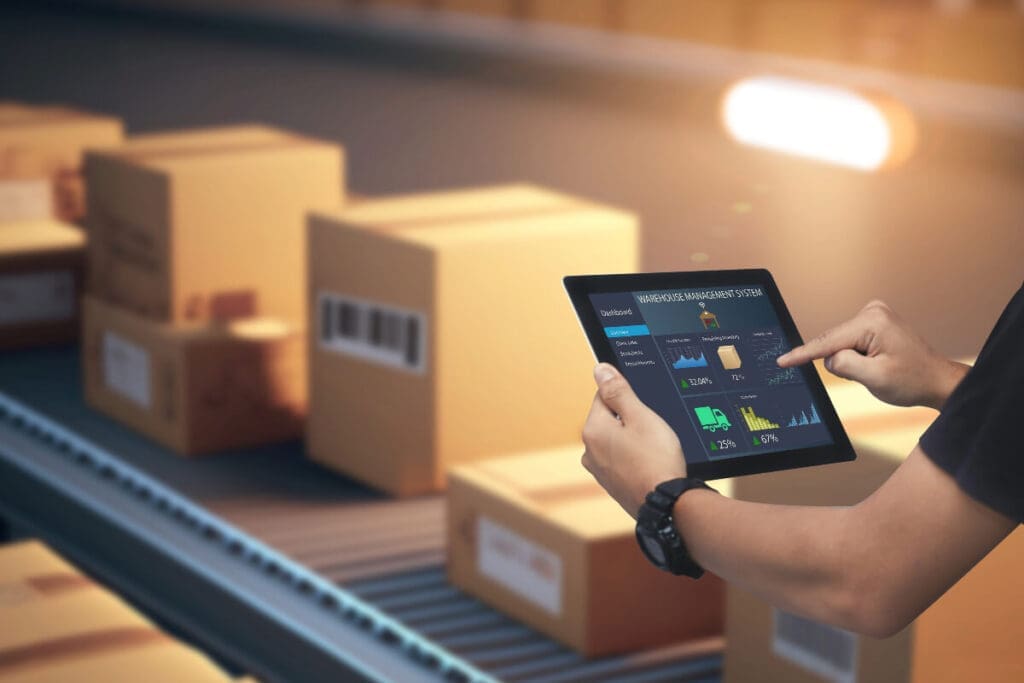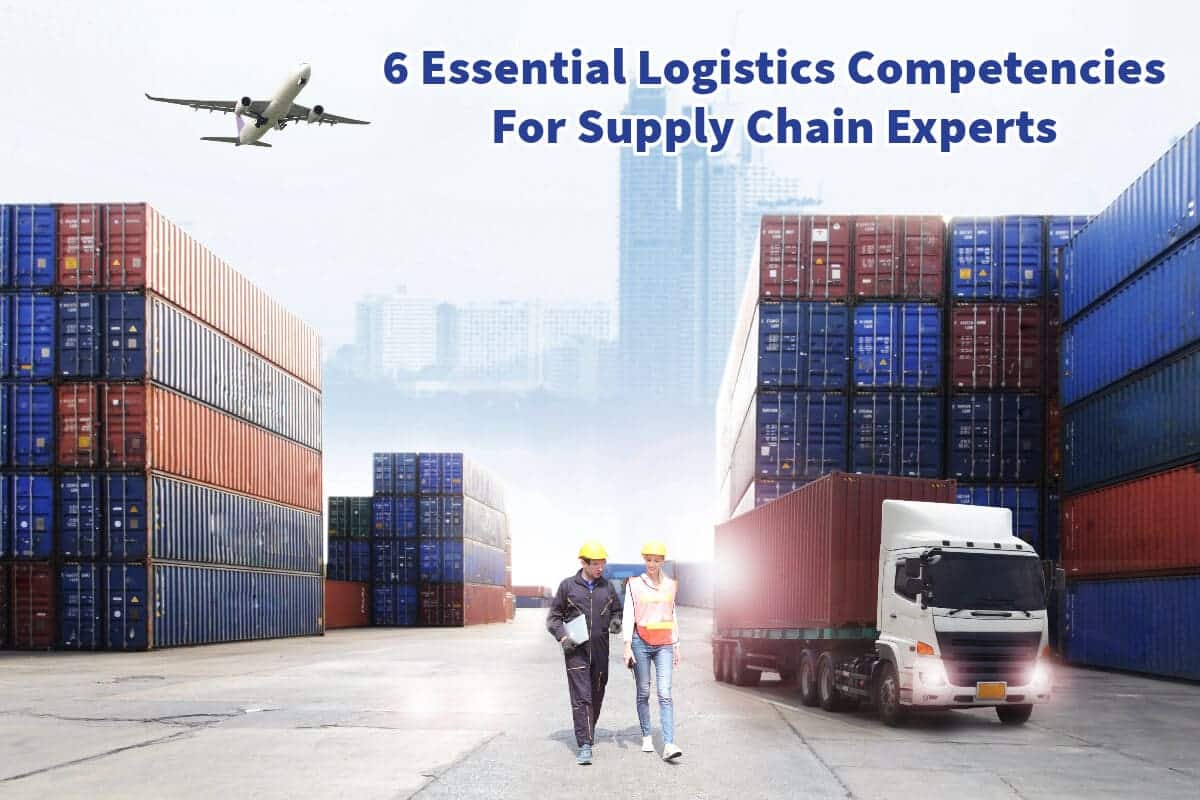From its inception thousands of years ago in organized trade, logistics has always been an integral part of commerce. However, it was only in the 1900s that it began to gain academic interest, especially in the context of farm product distribution. Mastering logistics remains challenging due to its intricate nature and influence on society’s living standards.
In our contemporary world, we often overlook the complexities behind the availability of our favorite items in shopping centers. This seamless shopping experience is attributed to robust logistical systems and professionals equipped with specialized logistics skills. Recent times have underscored the significance of effective logistics management, which enhances an organization’s profitability and competitive edge and occupies a notable place in financial statements.
Table of Contents
- The Intricacies Of Supply Chain Management Explored
- 6 Essential Logistics Skills For Today’s Supply Chain Experts
- 10 Reasons Why Being Part of the Global Supply Chain is Rewarding: Personal Reflections
- Related Content
The Intricacies Of Supply Chain Management Explored
The supply chain, the intricate network of processes that connect the sourcing of raw materials to the delivery of end products to consumers, is undeniably multifaceted.

Managing a supply chain can become a labyrinthine task, with every step demanding precision, coordination, and foresight. It’s a constant juggling act, where decisions made in one phase can ripple through and significantly impact outcomes in subsequent stages.
A diverse set of skills is indispensable for a supply chain to function efficiently. These include technical and soft skills, ranging from procurement expertise and inventory management to strategic foresight and effective communication.
The importance of these skills becomes even more pronounced considering the constant flux in global dynamics, market demands, and technological advancements.
In more giant corporations, each of these skills might be represented by dedicated personnel. A procurement specialist, for instance, would be responsible for sourcing materials at optimal costs while ensuring quality.
Simultaneously, a logistics manager would focus on ensuring timely transportation and delivery. However, in smaller companies, the scenario might be starkly different. Limited resources and personnel mean that one individual might wear multiple hats. This individual could be responsible for vendor relationships, inventory checks, and delivery schedules.

This versatility, while demanding, can offer unique insights into the system’s interdependencies. However, whether it’s a single individual juggling multiple roles or a team of specialists focusing on specific aspects, the essence remains: to master the complex web of supply chain processes, a comprehensive skill set, adaptability, and a forward-thinking mindset are crucial.
6 Essential Logistics Skills For Today’s Supply Chain Experts
Logistics experts do more than manage transitions of materials or information; they play pivotal roles in marketing, product development, price promotions, and innovating customer service solutions.
Their competence ensures prompt, accurate, and high-quality services, which lead to revenue growth, operational cost savings, and streamlined distribution. Here’s a deep dive into six essential competencies:
Distribution Design, Sourcing, & Management:
This entails mastering the best practices of establishing and supervising distribution centers and networks. It includes the optimization and creation of distribution setups.
Skills include crafting warehouse specifications, collaborating with distribution partners, and maintaining adequate inventory levels.
Global Trade Compliance:
A vital aspect revolves around understanding the rules governing product movements across borders. The nuances of international trade, import/export guidelines, and government-imposed compliance requirements are essential components.
Skills include liaising with various stakeholders for trade compliance, ensuring efficient goods flow, and grasping duty and tariff applications.
Sourcing & Supplier Selection/Management:
This competency involves mastering commercial purchasing practices. Factors like currency fluctuations, quality standards, legal stipulations, and cultural differences are crucial.
Skills include: understanding the dynamics of sourcing activities, strategic sourcing planning, and knowledge of supply markets.
Supply Chain Continuity Planning:
This is about designing a robust plan that shields against supply chain disruptions, ensuring uninterrupted operations.
Skills include assessing supplier risks, devising mitigation strategies, and leading coordinated responses to disruptions.
Transportation Sourcing & Management:
Here, the emphasis is on optimizing the movement of goods and selecting efficient transportation modes for all shipments.
Skills include understanding transportation dynamics, monitoring carrier compliance, and designing efficient transportation solutions.
Contract Management:
This involves understanding and crafting supply chain contracts, ensuring they are coherent, timely, and appropriately worded.
Skills include resolving contractual issues, crafting high-value contracts, and liaising with legal teams.
No professional is expected to excel in every logistics competency, but a balanced skill set is essential. Overemphasis on logistics might result in a myopic view, excluding the broader supply chain perspective and potentially dampening team morale.

As professionals prioritize these logistics skills, it’s crucial to integrate other supply chain competencies gradually. When balanced with action-oriented and motivational traits, these skills ultimately set the foundation for Supply Chain Professionals to drive transformative change across organizations.

At Mondoro, we strive to develop all these skills to continue giving our clients the best service possible. We understand that being a part of the global supply chain means we must always do our part to be the most reliable stakeholder possible.
If you are interested in seeing how Mondoro can help you with your supply chain – we would love to talk to you about how we can help you and be part of your global supply chain.
10 Reasons Why Being Part of the Global Supply Chain is Rewarding: Personal Reflections
I’ve been deeply entrenched in the global supply chain for over three decades. Throughout my journey in this sector, I’ve found countless reasons that affirm my belief in its merits as a career.
Here are some of the highlights that have shaped my perspective:
Global Work Opportunities:
One of the aspects I cherish the most about being involved in the global supply chain is the chance to work globally. Not only do I interact with people from different corners of the world, but I also get to understand diverse business cultures and practices.
Rich Experiences:
The global supply chain has provided me with experiences I would have never imagined. Every project, every interaction, and every challenge has been a learning opportunity, expanding my horizons and enriching my professional journey.
Insight into Manufacturing:
Before diving into this field, I had limited knowledge of how products are made. Now, I get a front-row seat in the world of manufacturing. Witnessing the transformation of raw materials into finished goods and understanding the intricacies of production processes has been genuinely fascinating for me.
Diverse Collaborations:
I’ve had the pleasure of collaborating with a myriad of professionals, from factory workers in one continent to top-tier executives in another. These collaborations have taught me the value of teamwork and the beauty of diverse perspectives coming together.
Continuous Learning:
The global supply chain is ever-evolving. For me, this means there’s always something new to learn, be it a technology, a strategy, or a market trend. This constant evolution keeps me on my toes and ensures that every day is intellectually stimulating.
Economic Impact:
Realizing the economic contributions I’m part of is truly empowering. By facilitating the flow of goods across borders, I boost economies, create jobs, and foster growth.
Problem-Solving Challenges:
The global supply chain presents unique challenges, from logistical hitches to communication barriers. For me, these challenges are opportunities to think critically, innovate, and find efficient solutions, making every accomplishment all the more rewarding.
Cultural Enrichment:
Interacting with suppliers, partners, and colleagues from different cultural backgrounds has been an enlightening experience. I’ve learned about traditions, festivals, and even cuisines, making me feel more connected to the world.
Adapting to Change:
The dynamism of the global supply chain has honed my adaptability skills. Whether it’s adjusting to new regulations, adapting to market shifts, or embracing technological advancements, I’ve become more resilient and agile in my approach.
A Sense of Fulfillment:
At the end of the day, knowing that I’m a cog in the vast machine that ensures products reach their intended destinations, from electronics to essential medicines, gives me a profound sense of purpose and fulfillment.
Being a part of the global supply chain is not just a profession for me; it’s a journey filled with learning, growth, and meaningful contributions. It’s a world where every day offers new stories, challenges, and joys, making it a truly enriching experience.
Find out more about how Mondoro can help you create, develop, and manufacture excellent home decor and home furniture products – don’t hesitate to contact me, Anita. Check out my email by clicking here or become a part of our community and join our newsletter by clicking here.
Mondoro gives out a FREE Lookbook to anyone interested. You can receive a copy of our latest Lookbook by clicking here.
Listen to our Podcast called Global Trade Gal. You can find it on all major podcast platforms. Try out to listen to one of our podcasts by clicking here.
Subscribe to our Mondoro Company Limited YouTube Channel with great videos and information by clicking here.
Related Content
What Is The Difference Between Supply Chain Management and Logistics?
Supply chain management is about the collaboration and partnerships to get the goods from raw material to the end consumer; it is about the partnerships and collaborations within this supply chain process. Logistics is one part of the supply chain management; logistics is about moving the goods from one place to another. In some instances, the logistics providers will also store the goods and send them on to the end consumer.
You can learn more by reading our blog What Is The Difference Between Supply Chain Management and Logistics? by clicking here.
What Are The Benefits Of Supply Chain Management?
There are many benefits to supply chain management. The benefits of supply chain management include teamwork and collaboration, improved quality control, better efficiency and effectiveness, on-time deliveries, maximization of overhead costs, improved cash flow, risk mitigation, and shipping optimization. All of these areas are greatly helped by proper supply chain management.
You can learn more by reading What Are The Benefits Of Supply Chain Management? by clicking here.
Product Sourcing and Strategic Sourcing Explained
Product sourcing is when you source or look to find a supplier for a product you need. Strategic sourcing is strategically sourcing products. Strategic sourcing is not the lowest purchase price but the lowest overall cost. Product and strategic sourcing are very similar, but strategic sourcing is sourcing with a plan.
You can learn more by reading Product Sourcing and Strategic Sourcing Explained by clicking here.

